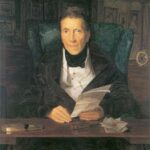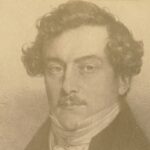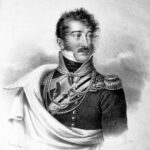As we continue our studies on friends and influencers in Beethoven’s life, we focus this time on the kind and noble Lichnowsky-family, in Vienna.
One of Beethoven’s earliest Vienna friends was Prince Lichnowsky and his family. The Prince was a noble man, a gentleman and not least a music lover. He was the pupil of non-other than Mozart himself! Both he and his wife were admirers of Mozart and later, when they met Beethoven, immediately recognized the same genius in him.
Not only did they help him into the high society of this imperial capital, but from start they gave him a home in their bastion and provided him with a yearly 600 florins allowance (roughly $25,000 a year today). This money and the support he was having by the Elector of Bonn allowed him complete independence, something not many composer enjoyed before. As the older princely couple was without children, Beethoven served as a quasi child. He was spoiled, even keeping a private orchestra at home for his purposes. The level of support and admiration is well represented by the fact that the Prince ordered his servants to answer Beethoven first, should they ring at the same time…
Considering Beethoven’s character and his complete rejection of any form of restraint, this way of living was doomed to end soon. He did as he wished and when he liked it! The Prince never met anything like this before, most certainly not from Mozart! The Princess always made peace between the men and tried to protect Beethoven as much as she could. As he put it later “she wished to put me under a glass shade, that no unworthy person might touch or breathe on me.” This was a nice intention, but not freedom after all.
This co-existence between autonomous composer and admiring hosts lasted for two years, then Beethoven moved – as he would do so many times in the coming years.
Once – years later – the composer stayed in Lichnowsky’s country estate near the Bohemian city of Troppau. As some French officers were visiting, the Prince asked him to play for them. Beethoven refused (one of the officers insulted him) and closed his room’s door. The host was so furious, he crashed the door, just facing Beethoven with a raised chair above his head, ready to throw at the Prince… The quarrel ended with Beethoven leaving during the night, in rain. One of the manuscripts he carried and got water stains on it was the Appassionata – still visible today in the museum. Upon arriving home the enraged composer smashed the marble bust of Lichnowsky he had in his apartment. The relationship never got back to where it was before the incident.
According Maynard Solomon, “In later years, Lichnowsky would visit Beethoven in his study, quietly sit watching his protégé at work, and then depart with a brief ‘Adieu’. On occasion Beethoven would lock him out, and the prince, uncomplaining, would descend the three flights of stairs to the street.”
He dedicated to the Lichnowsky family many of his compositions, like the Second Symphony or the Sonata Pathetique.
Before heading back to Vienna on that notable night, he wrote a letter to the Prince, which became famous.
“Prince! What you are, you are by circumstance and birth. What I am, I am through myself. Of princes there have and will be thousands. Of Beethoven there is only one!”






